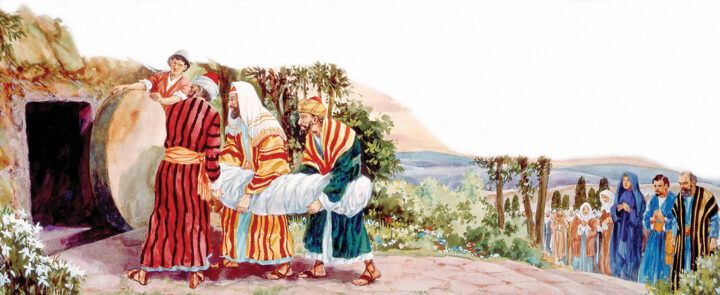Daily Lesson for Thursday 19th of September 2024
Read Mark 15:42-47. What is the significance of Joseph of Arimathea’s intervention, especially since all of Jesus’ disciples were nowhere to be seen?
After all that drama, the more “mundane” things happen next. For starters, dead people always have to be buried. But several factors in what follows are quite touching spiritually, and others are extremely important historically.
In this passage, Joseph of Arimathea appears for the first and last time in the Gospel of Mark. He was a respected member of the Sanhedrin and one of the “urban elites.” As a wealthy and respected man, he had standing with the governor, which explains how he could dare approach Pilate and ask for the body of Jesus. It is a touching detail that a member of the council took such interest in Jesus’ burial. Meanwhile, where were Jesus’ trusted disciples in all this?
One historical detail of extreme importance here is the verification of the death of Jesus. Mark 15:43 tells of Joseph’s request for the body of Jesus. But Pilate was surprised to hear that Jesus already was dead (Mark 15:44). He, therefore, summoned the centurion in charge of the crucifixion and asked if Jesus was dead already. The centurion confirmed that it was so.
This is important because of the later claim by some that Jesus did not die on the cross but only fainted. The testimony of the centurion to the Roman governor directly counters that assertion. The Romans did, after all, know how to execute criminals.
Joseph brought a linen shroud to wrap Jesus, and he laid His body in a tomb hewn from rock. This tomb was large enough to walk into (Mark 16:5). Along with Joseph, the Gospel writer notes two women who saw the location—Mary Magdalene and Mary, the mother of Joses. These two, along with Salome, watched the Crucifixion from a distance; all three will go to the tomb on Sunday morning with the intention to complete their work of embalming Jesus (Mark 16:1).
Why the reference to these three women? They will be the witnesses to the empty tomb in Mark 16:1-20 and thus are important witnesses of the resurrection of Jesus.
|
How ironic that Jesus’ followers are “missing in action” while a member of the Sanhedrin, the very body that condemned Jesus, becomes the “hero” here. How can we be sure that, in crucial times, we are not missing in action either? |
 (1)
(1)



